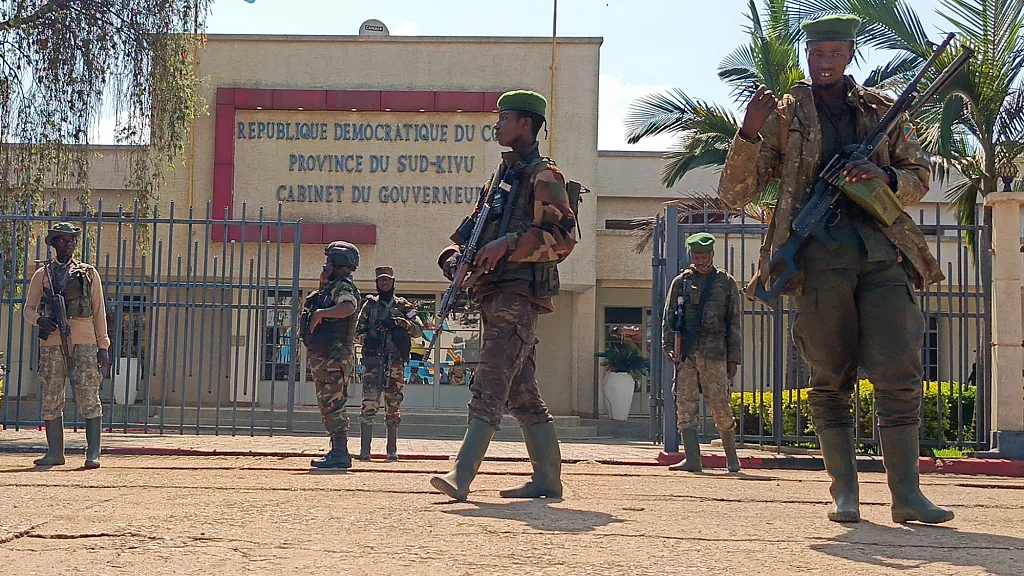Africa
DRC Crisis Deepens as Rebels Seize Control of Bukavu, Expanding Territory

M23 rebels continue their advance in the Democratic Republic of Congo, capturing Bukavu and expanding their stronghold amid escalating tensions.
Bernard Maheshe Byamungu, a sanctioned M23 leader by the U.N. Security Council for human rights violations, stood outside the South Kivu governor’s office in Bukavu and expressed to residents that they have been residing in a “jungle.”
“We’re committed to tidying up the chaos inherited from the previous regime,” Byamungu declared, as a few in the small gathering of young men encouraged the rebels with calls to “advance all the way to Kinshasa,” Congo’s capital, almost 1,000 miles distant.
In a social media statement, Congo’s communications ministry has admitted for the first time that Bukavu is “occupied.” The national government stated it is “doing everything possible to restore order and territorial integrity” in the area.
Blaise Byamungu, a resident of Bukavu, stated that the rebels entered the city after it had been “abandoned by all authorities and left without any loyalist forces.”
Byamungu remarked, “Is the government going to wait until they seize more towns before taking action? Such inaction is cowardly.”
Concerns about regional tensions increasing
Analysts have noted that, unlike in 2012 when the M23 momentarily captured Goma and retreated due to international pressure, this time the rebels appear to be aiming for political power.
The conflict in Congo is intertwined with a longstanding ethnic strife. The M23 group asserts that it is protecting the Tutsi community within Congo. Meanwhile, Rwanda has alleged that the Tutsis are facing persecution at the hands of Hutus and ex-militia groups implicated in orchestrating the 1994 genocide, where 800,000 Tutsis and others were killed in Rwanda. Following this tragic event, numerous Hutus escaped to Congo and established a militia known as the Democratic Forces for the Liberation of Rwanda (FDLR).
Rwanda claims that the militia group is “fully integrated” into the Congolese military, a claim which the latter denies.
However, the emergence of Corneille Nangaa as the new face of M23 in the region demonstrates a shift towards “a new, more diverse Congolese identity,” according to Christian Moleka, a political scientist at Dypol, a Congolese think tank. Previously perceived as an armed group backed by Rwanda that defended Tutsi minorities, M23 is now led by someone who is not Tutsi.
Congo’s President Felix Tshisekedi, whose government stated on Saturday that it still maintained control over Bukavu, has cautioned about the potential for the conflict to spread across the region.
In Goma, Congolese forces received support from South African troops, while in Bukavu, they were assisted by units from Burundi. However, the President of Burundi, Evariste Ndayishimiye indicated on social media that his country would refrain from retaliating in the conflict.
The conflict was a top priority on the agenda at the African Union summit in Ethiopia over the weekend, where U.N. Secretary-General António Guterres cautioned that it could escalate into a regional crisis.
Nevertheless, African leaders and the international community have hesitated to take firm action against M23 or Rwanda, which possesses one of Africa’s most formidable military forces. The majority continue to advocate for a ceasefire and encourage dialogue between Congo and the rebels.
